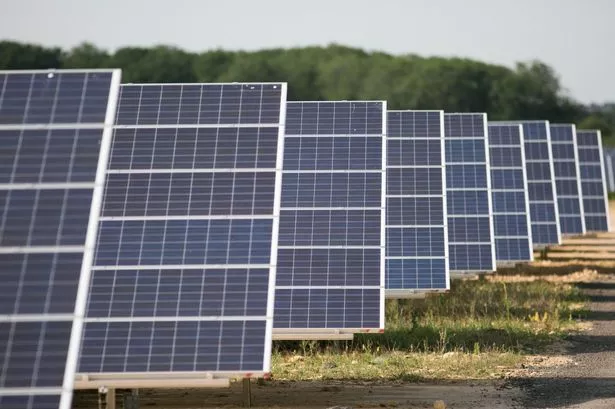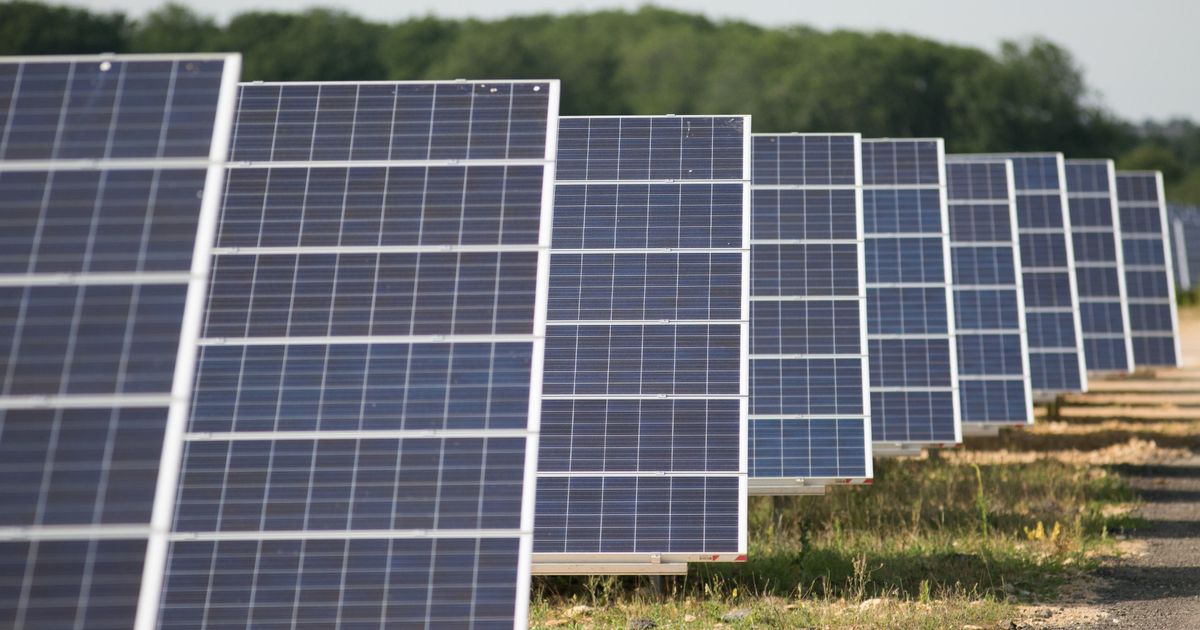It would be built in the north west of the city A stock image of solar panels in a field(Image: Daniel Leal-Olivas/PA Wire)
A stock image of solar panels in a field(Image: Daniel Leal-Olivas/PA Wire)
The news that Bristol City Council and its City Leap partners have announced plans for another major solar farm has provoked a mixed reaction from Bristol Live readers. It will be the third in the city this year as part of efforts to boost local renewable energy.
The scheme, a joint venture between the council and US energy firm Ameresco, would see a solar farm built on Smoke Lane in Avonmouth, capable of generating enough power for around 1,000 homes.
It follows two earlier City Leap projects: an expansion of the existing Severn Road solar field in Avonmouth and a new 2.5-megawatt site proposed for Withywood on the city’s south-west edge. Under the partnership, Bristol City Council provides the land while Ameresco funds and builds the sites, selling the electricity and reinvesting part of the profits back into nearby communities.
Cllr Martin Fodor, chair of the council’s environment committee, said: “Solar farms are key to increasing local power generation and cutting reliance on fossil fuels. This is another example of City Leap delivering real benefits for Bristol and its residents.” City Leap said the Smoke Lane location was chosen because it is brownfield land within an industrial area and offers easy access to the National Grid.
Mark Apsey, senior vice president at Ameresco, called the project “a significant move forward” in Bristol’s transition to clean energy. He said the work would support local jobs and strengthen the city’s economy “while paving the way for a more sustainable future.”
The proposal still requires planning permission. City Leap will host engagement events to share details with residents, businesses and community groups before submitting the application.
Commenter Figaro1785 says: “Quite a lucrative venture for Ameresco, then, which extracts the profit. Such a big solar farm may prove necessary to provide part of the power if a data centre comes to the West of England from a deal with Trump. Wiltshire has one which consumes an equivalent amount of electricity to thousands of homes.”
Blackbeard83 replies: “It brings more jobs, cheaper energy and is clean energy. What’s not to like? We have to stop the nimbyism.”
6470 retorts: “We don’t make the solar panels or the windmills, the only jobs created will be putting the China made solar panels in place. Clean energy is a myth, what about all the digging up of land to get the things out needed to make batteries? Not impressed with this, I thought we were building badly needed homes or houses, I do not want solar panels on farmland.”
HanhamHeights points out: “You’re conveniently forgetting the huge number of UK jobs involved in planning, designing, installing, connecting, maintaining, and managing these projects. Just because the panels are made elsewhere doesn’t mean the entire industry disappears. Should we stop building houses because the bricks might be imported?
“Also, yes, making panels involves digging things up. Once. Burning fossil fuels involves constant digging, constant shipping, constant pollution, and constant climate destruction, every single day. Calling clean energy a myth because of manufacturing is like saying surgery is pointless because you need a scalpel.”
Magrathean thinks: “Solar panels belong on roofs, not fields. Maybe the taxpayers’ money could pay for solar panels on our roofs instead.”
Berklicker adds: “Surely they should be building 1,000 homes on a brownfield site rather than farming electricity through foreign companies?”
HanhamHeights says: “Have a look at the actual location. It’s a brownfield industrial site. Not suitable for crops. Not suitable for homes. Perfectly suitable for generating clean energy. What’s the problem? This is exactly where solar farms should go.”
Blackbeard83 points out: “How do energy prices stop being impacted by overseas wars if we don’t have our own homegrown energy?”
Mike McKeown is in favour: “Excellent, helps us get rid of polluting and expensive gas – gas that caused the energy crisis that cost billions. Also good that in 2027, finally, new homes must be built with solar, which reduces, a bit, the need for solar farms. Why aren’t solar farms built on car parks and buildings? Because the electricity would be far more expensive. We need lower, not higher bills.”
What do you think about plans for a new solar farm? Is this the right step toward cleaner energy? Share your views in the comments.

